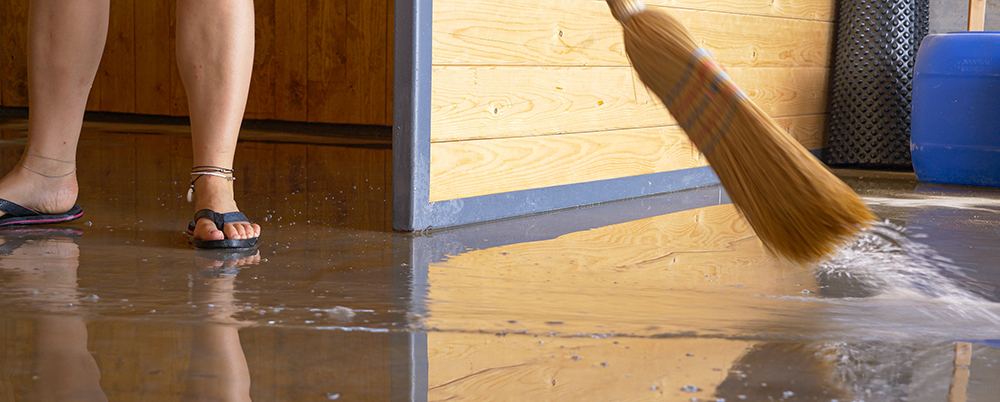
After Hurricane Harvey struck Houston in 2017, the women of Mexican origin living there were forced to embark on an arduous journey toward recovery. For many, it took months and even years to regain some sense of normalcy—in large part because they had to overcome systemic barriers and obstructive policies that others don’t.
To better understand the obstacles they faced, I interviewed 46 women of Mexican origin—both those who had migrated from Mexico and those who had been born in the United States to an immigrant parent—about their experiences following Hurricane Harvey.
The results of my research showed that these women faced distinct hardships in accessing disaster housing assistance and recovering in general. It was also clear that recognizing the inequities they regularly encounter can provide opportunities to address them.
Discrimination in Disaster Recovery
Immigrants have often faced discrimination from local relief officials. Latine immigrants during Hurricane Katrina, for example, were labeled Mexican by disaster relief officials—regardless of their country of origin—and assumed to be “illegal.” They routinely faced housing discrimination because their skin was brown or their English skills were poor. This has particularly negative consequences for those with racialized gender identities. For instance, shortly after Hurricane Harvey, then-President Donald Trump revived the welfare queen trope once used to discredit Black women, insinuating that Mexican immigrant mothers were depleting government resources.
These racialized and gendered stereotypes are at the root of numerous anti-immigrant policies that actively or passively discriminate against individuals of Mexican origin—especially women—by restricting access to resources.
The women I interviewed faced policy barriers and obstacles that emerged from power dynamics—structural, organizational, and interpersonal—that limited their access to resources, information, and opportunities. Their immigration status, financial circumstances, housing tenure, and household responsibilities all impacted their ability to access disaster housing recovery assistance.
Disaster Assistance Barriers and Impacts
Applying for disaster assistance can be confusing under the most favorable circumstances, but adding immigration status, financial issues, and renter status to the mix can make the process particularly daunting.
For instance, immigrants without documentation can apply for Federal Emergency Management Agency (FEMA) disaster assistance as long as someone in their household—including underage children—has a social security number. This, however, is not widely understood.
The women in my study were unsure if they were eligible for assistance from FEMA and other programs, including nongovernmental sources, because they or an immediate family member lacked documentation. Some women said that they were afraid that seeking assistance would affect their ability to obtain documentation in the future.
Even when the women did apply, their immigration status played a role in their ability to advocate for themselves. They often became stuck in what I call application purgatory, where they don’t receive updates or information on their application status. Women who became stuck in application purgatory or were denied assistance attributed it to their legal status, reflecting misinformation about programs. Similarly, those who rented their homes had the misconception that renters are not eligible for any assistance. This meant renters had less access to financial resources to recover.
Compounding this lack of disaster assistance is a lack of other assistance types. Although more than half the women in the study lost income due to Harvey, they couldn’t access either regular or disaster unemployment benefits because they lacked a social security number. This compounded their low socioeconomic status and ultimately hindered their ability to recover swiftly.
Points of Intervention
In recognizing these barriers, we have the opportunity to identify specific interventions that could improve the outcomes for women of Mexican origin during and after disasters.
An important first step would be to evaluate program eligibility for ways to reduce barriers for socially vulnerable applicants, including excessive documentation requirements. Doing so would ensure more equitable distribution of disaster recovery assistance.
Disaster recovery programs should also work to eliminate misinformation so that groups such as immigrants and renters are aware that they are eligible for assistance. Federal agency and nonprofit representatives, as well as case managers, should emphasize that seeking resources during an emergency will not affect an undocumented individual’s ability to achieve legal immigration status or lead to deportation.
Additionally, it would be helpful to place more disaster recovery centers in communities outside of major cities and conduct targeted outreach to provide services to these communities. Disaster agencies should seek partnerships with trusted and knowledgeable community liaisons, such as promotores.
Shifting policies and practices is crucial so that agencies are more capable of equitably distributing recovery assistance. Just as disaster recovery agencies can perpetuate inequities, so too do they have the power to reduce—even eliminate—them.
Melissa Villarreal is currently an Oak Ridge Institute for Science and Education (ORISE) Fellow at the U.S. Forest Service. Her work centers primarily around the post-disaster recovery of vulnerable populations. She has led and contributed to projects focused on women’s experiences during and after disaster, structural vulnerability and reproductive health access for Mexican-origin women, and parental notification and access to abortion among minors. Villarreal is a Natural Hazards Center and Bill Anderson Fund alum and holds a PhD in sociology from the University of Colorado.